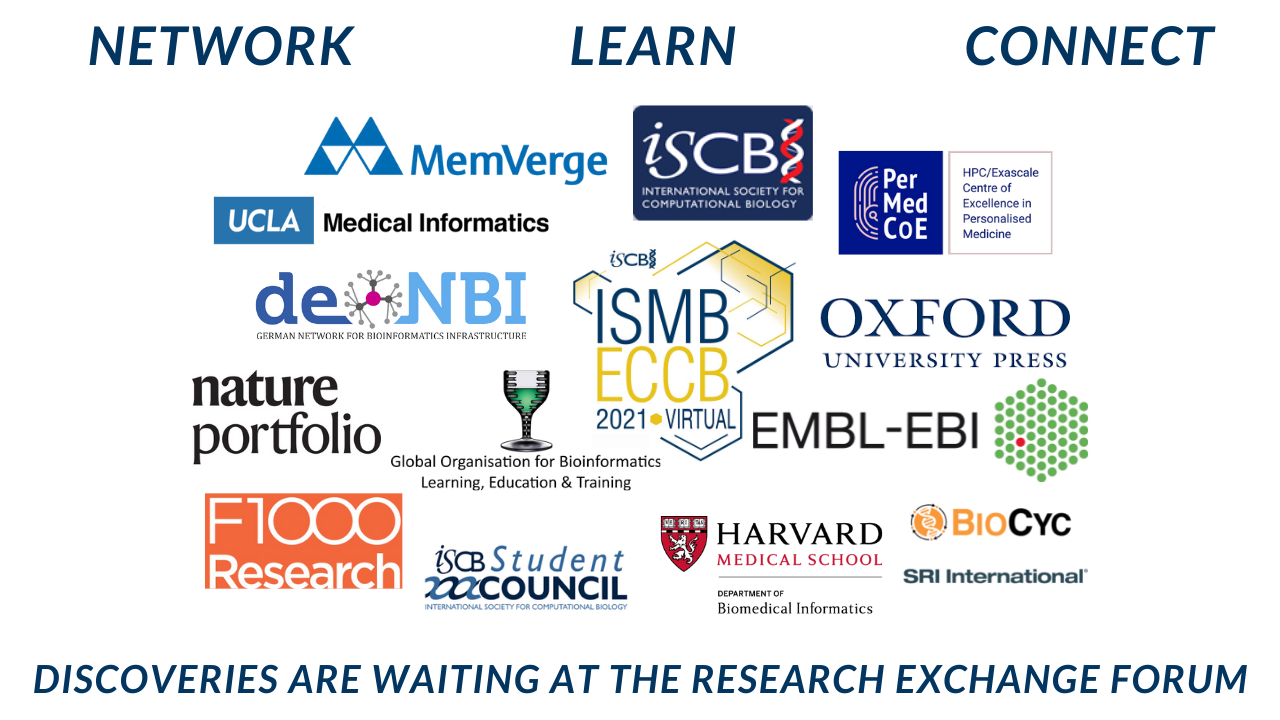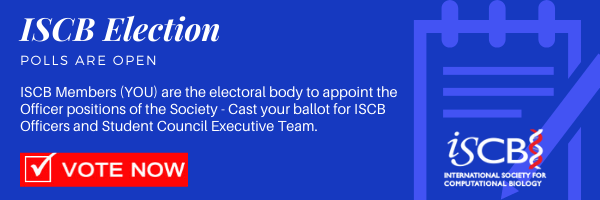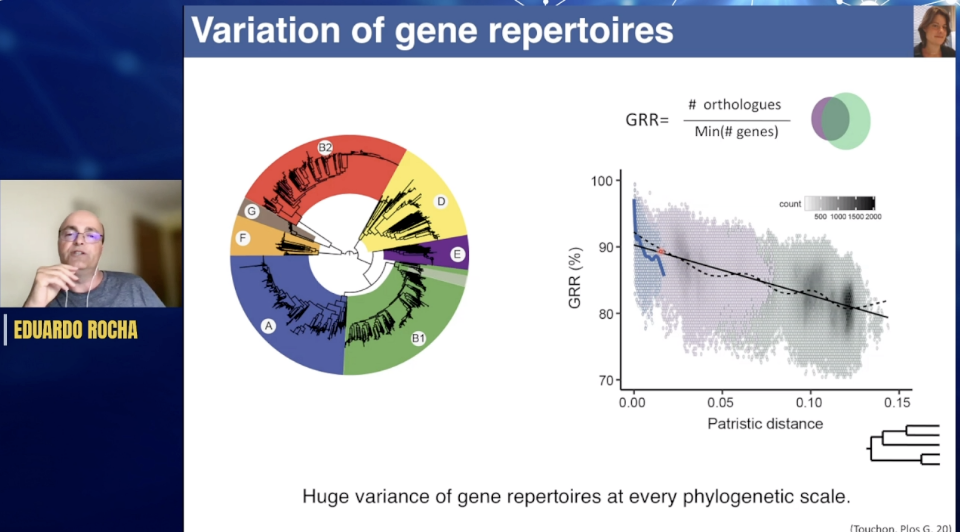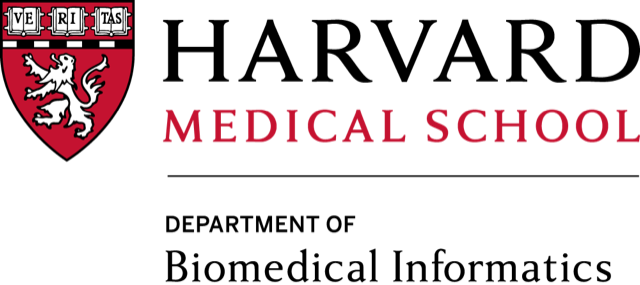Special Session Recaps
EDI Panel Discussion Takes Center Stage at NIH ODSS Track (ISMB 2021)
Dr. Susan Gregurick, Director of NIH ODSS, organized and co-chaired with Dr. Karol Watson, Professor of Medicine in the Division of Cardiology at the David Geffen School of Medicine at UCLA, a vibrant panel discussion on "Diversity in Data Science Training and Research."
An array of data science experts from underrepresented groups, coming from academic institutions (e.g., Hispanic-Serving Institutions, HSIs; Historically Black Colleges & Universities, HBCUs), legal industry, and technology industry tackled critical questions focusing on issues of equality, diversity, and inclusion (EDI) in multiple dimensions of data science training and research:
How do we define, measure and operationalize EDI? EDI concepts can mean different things in different settings, and there is no “one size fits all” approach. What must we do to gain support for EDI beyond procedural compliance or symbolic initiatives? What mechanisms do we apply to increase the diversity and/or cultural competence of those involved in data science training? What are the appropriate metrics for evaluating our progress?
Public Affairs & Policy Committee - Science Communication and Science Journalism
The COVID-19 pandemic has brought science into the limelight of public perception in an unprecedented fashion. Scientists have become more present in the media, accelerated transmission of new results has been effected by the public starting to pay attention to unreviewed research reports, journalists have been faced with the requirement to bring such emerging results to the public on short notice. Today's panel moderated by Thomas Lengauer, ISCB's Immediate Past President, focused on challenges facing both scientists and members of the media. Panelists, Kai Kupferschmidt, Independent Science Journalist, Emma Hodcroft, University of Bern, John Moult, Institute for Bioscience and Biotechnology Research (IBBR), and Freya Robb, Science Media Centre, joined to discuss issues on how to best effect communication to the public on science results and also and especially on the science process.
*Live session should be posted within 24 to 48 hours. Please make sure to check back for the recordings and keep the conversations going*
COSI Recaps
BioVis
The first day of BioVis started with a keynote by Seán O’Donoghue about inter-disciplinary practices in biological visualization. Seán shared his experiences using mixed practices in approaching several scientific challenges for instance, in multi-omics and genetic variation analysis, and shared reflections on establishing visualization as a powerful technique. The keynote was followed by an invited talk delivered by Liz Marai on their RuleBender paper that received our newly introduced Test of Time Award, which is given out to an influential paper published at BioVis at least 10 years ago. The following two sessions focused on visualization in the field of genomics as well as cellular and omics data. Besides short talks for abstracts, there was one ISMB proceedings talk and an invited highlight talk given by Jen Rogers. In the evening, a virtual social event was held, which included a memorial for Michel Westenberg, who passed away earlier this year. He was a well-known and highly regarded member of the BioVis community.
The second day started with talks focusing on the integration of visualization and machine learning techniques. While some of the talks explored explainability issues within deep learning techniques for drug repurposing and analysis of high-dimensional data, others looked into how hierarchical visualization and association-focused techniques could support the analysis of transcriptome data and single cell RNA-seq datasets. The next set of talks, featuring another ISMB proceedings and an invited highlight talk by Helena Jambor, introduced new techniques to visualize imaging data using some innovative techniques such as visual exemplars, and novel glyph based representations that serve as pictorial summaries, as well as empirical research outlining best practices for producing effective images in publications. The closing session featured a keynote talk by Jessica Hullman who shared her research and insights on uncertainty visualizations, and how models of inference can transform our understanding of how people reason with data visualizations.
CompMS
The CompMS COSI wrapped up a successful two days on Tuesday. The first day focused on computational metabolomics, and started off with a keynote by Dr. Theodore Alexandrov on how computational mass spectrometry enables spatial and single-cell metabolomics. On the second day Dr. Vadim Demichev shared his views on recent advances enabling high-throughput proteomics during the opening keynote, and during the closing keynote Dr. Ed Huttlin presented the BioPlex project for biological discovery of the 'social network' within a human cell. Additionally, the program featured 15 oral presentations during which speakers discussed a wide range of computational mass spectrometry metabolomics and proteomics advances. Topics reached from developments in single-cell metabolomics, over machine-learning applications in proteomics, all the way to exciting new developments for screening interactome data.
EvolCompGen
We had another exciting day at the Evolution and Comparative Genomics (EvolCompGen) COSI featuring eight talks and several posters coming in from at least three continents. They spanned a variety of subjects from the evolution of proteins, domains, gene content, tumor cells to evolutionary events such as horizontal gene transfer, endosymbiotic gene transfer, copy number alterations, tandem duplication of protein domains and DNA repair through non-homologous-end-joining. We also got to see more examples of machine-learning applied to evolutionary analysis and an exciting webapp for characterizing protein using molecular evolution. Finally, we ended the day with more discussion of domain evolution and linguistic methods applied to cancer. While we miss in-person interactions, we have had a good time connecting with COSI members on Cafe Connect and Slack!
Join us tomorrow for the third and final day of our COSI – not just on Zoom but also on Cafe Connect, and our new community Slack (https://bit.ly/evolcompgen). Also, don’t forget to partake in our closing panel discussion at 14.40 UTC, Jul 28!
|
|
Cheat-Sheet Section/Platform Tips:
From time to time we may experience technical issues. When in doubt, give the system a quick refresh!
Updating the Time zone
The ISMB/ECCB 2021 virtual platform is enabled with time zone localization to enhance usability. In order to set the platform to your local time zone, click on "Full schedule" and then click on the dark grey "My Time Zone" box to ensure it is activated. Once clicked, the box will darken in color and your schedule will automatically be viewed in your local time zone.
Struggling with UTC conversion - UK +1 CEST +2 EDT -4, CDT -5, MDT -6, PDT -7, AEST +10, Tokyo +9, Beijing +8
|
| 11:00 UTC: |
COSI Tracks: MLCSB, CAMDA, Function, EvolCompGen,
RegSys, Microbiome, TextMining, iRNA |
| 11:00 UTC: |
Special Session Emerging gain-of-function mutations and their characterization by multi-omics network biology |
| 11:00 UTC: |
NIH/ODSS Special Track |
| 15:20 UTC: |
Research Exchange Forum for Birds of a Feather (BoFs) |
| 15:20 UTC: |
Poster Session D: CAMDA, Education, EvolCompGen, Function, iRNA, MICROBIOME, MLCSB, RegSys, Text Mining |
| 15:20 UTC: |
Exhibitor Demos:
PerMedCoE: Core applications PhysiCell-MPI, PhysiBoSS COBREXA and CellNOpt/CARNIVAL |
15:20 UTC:
|
Exhibitor Demos:
PerMedCoE: Core applications PhysiCell-MPI, PhysiBoSS COBREXA and CellNOpt/CARNIVAL
EMBL-EBI: New training website and upgraded online tutorials
GOBLET: the Global Organisation for Bioinformatics Learning, Education and Training
EMBL-EBI: Curated course collections and new training materials collections
de.NBI: Introduction to de.NBI / ELIXIR-DE and the de.NBI cloud |
| 16:20 UTC |
ISCB Distinguished Keynote: Kate Jones |
17:20 UTC:
|
Daily Closing Comments |
|











